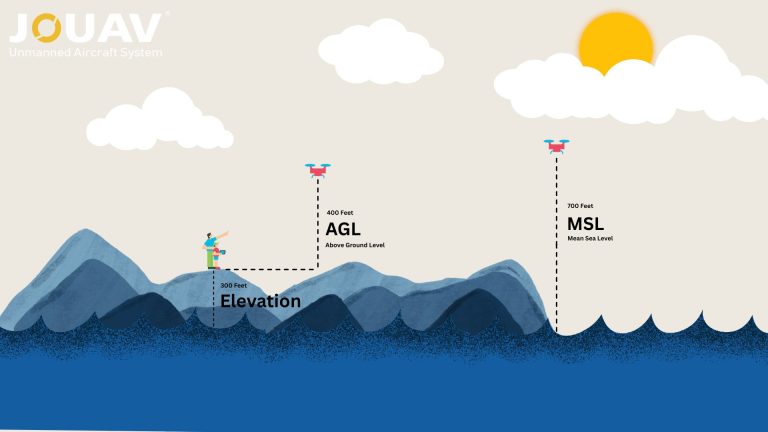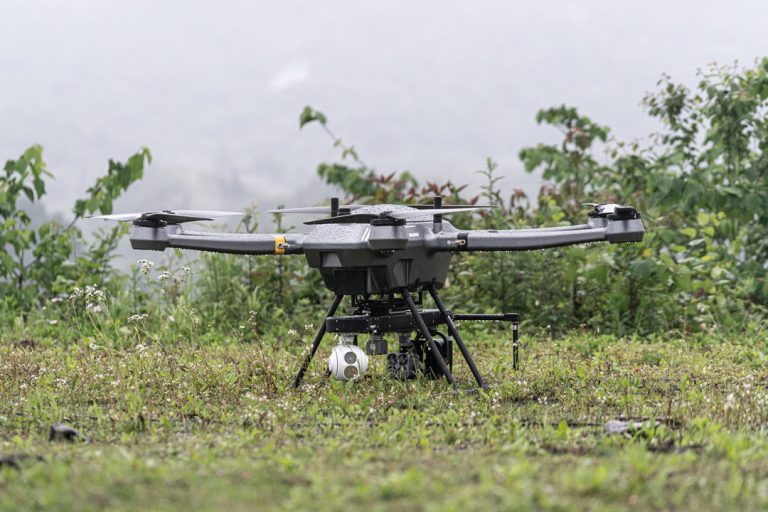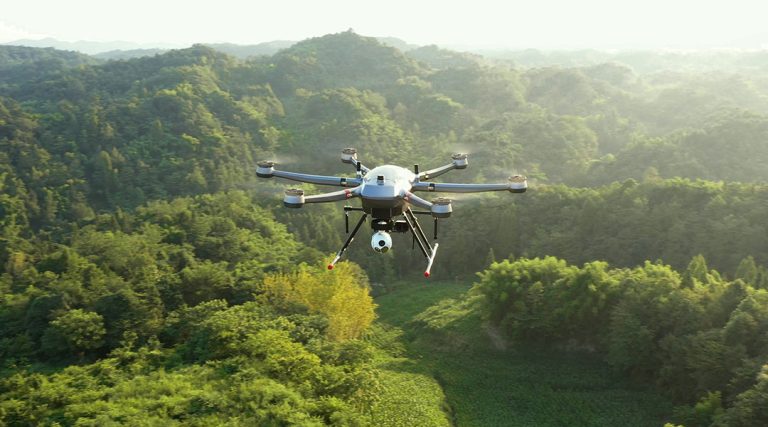Can You Fly a Drone Over Private Property? State-by-State Guide 2025
Drones, also known as unmanned aerial vehicles (UAVs), have become increasingly popular for recreation and photography to commercial applications such as agriculture, construction, and surveillance.
However, their ability to navigate unseen skies raises privacy concerns. One of the most common questions drone pilots face is: Can you fly a drone over private property?
The answer is not a simple yes or no. While technically permissible under Federal Aviation Administration (FAA) regulations, responsible drone use requires obtaining permission from landowners, maintaining a safe altitude, and respecting the privacy of others.
Wondering if you can fly over someone's backyard? This guide dives into the legalities of drone use over private property in the US, explores state-by-state variations, and equips you with best practices for responsible flying.
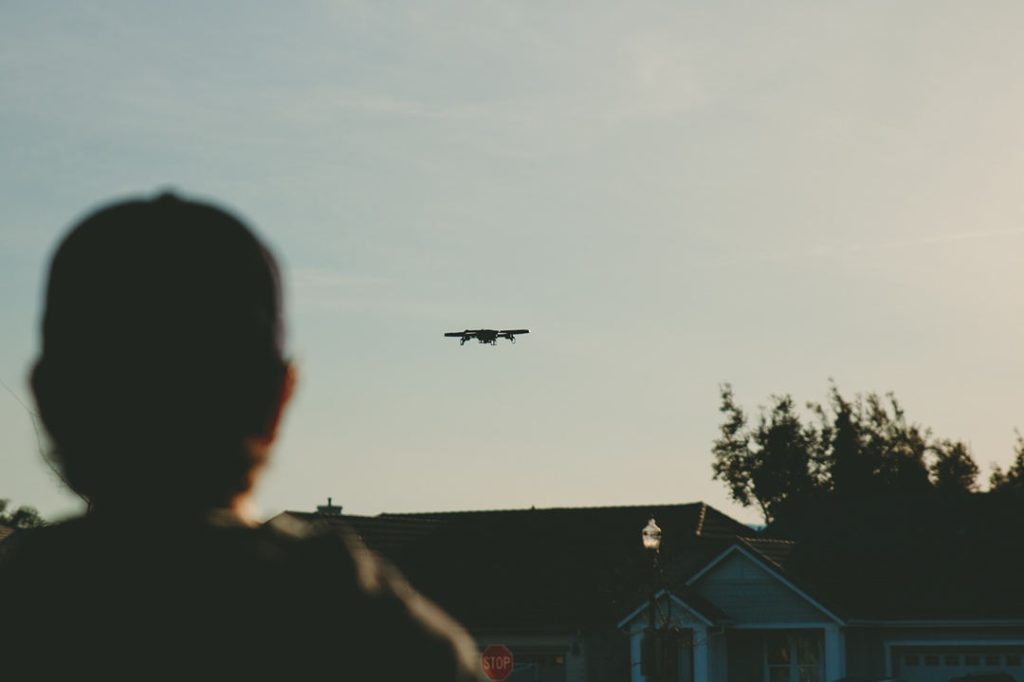
Is it Legal to Fly a Drone over Private Property?
The legalities surrounding drone flights over private property involve a combination of federal, state, and local regulations. Here's a breakdown of each layer:
Federal Aviation Administration (FAA) Regulations
The FAA governs drone usage in the United States through Part 107, which applies to both recreational and commercial operators. While Part 107 outlines safety guidelines and registration requirements, it does not explicitly restrict flying drones over private property if you adhere to altitude and airspace limitations. Key rules include:
- Maintaining a visual line of sight (VLOS) with your drone.
- Flying at or below 400 feet above ground level (AGL).
- Keeping your drone away from airports and restricted airspace.
State and Local Laws
Despite the FAA's lack of restrictions on private property, many states and localities have drone regulations that may impose additional restrictions or require permits for flying over private property. Always check with state and local authorities for any extra rules before flying.
Here are some examples of how state laws can vary:
| State/Province | Regulations | Source Link |
| California | AB 856 prohibits drone use to invade privacy. | AB 856 // 2015 |
| New York | No specific state laws. NYC restricts drone use. Check local ordinances. | NYC Drone Permits |
| Georgia | GCAA prohibits aerial photography of the general public or private property without consent. | Georgia Civil Aviation Authority |
| Tennessee | SB 1892 makes it a Class C misdemeanor to use UAS for intentional surveillance of an individual or their property. | SB 1892 // 2014 |
| Indiana | HB 1009 makes it a Class A misdemeanor to conduct electronic surveillance of private property without permission. | HB 1009 // 2014 |
| Florida | SB 766 prohibits drone use to capture images of private property without consent if there is a reasonable expectation of privacy. | SB 766 // 2015 |
| Michigan | SB 992 prohibits drone use to harass individuals, violate restraining orders, or invade privacy. | SB 992 // 2016 |
| Texas | HB 912 makes it illegal to capture, use, or distribute images of individuals or property without consent. | HB 912 // 2013 |
| Ohio | Rule 3341-6-50 requires drone operators to avoid violations of privacy while recording images. | Rule 3341-6-50 |
| Hawaii | No specific state laws. Check local ordinances. | Hawaii State Legislature |
| Pennsylvania | Title 18 Sec. 3505 prohibits drone use for surveillance, causing fear of bodily injury, or delivering contraband. | Title 18 Sec. 3505 // 2018 |
| North Carolina | NC Gen. Stat. § 15A-300.1 restricts drone use over private property without consent. | NC Gen. Stat. § 15A-300.1 |
| Oklahoma | HB 3171 prohibits drones from trespassing or conducting surveillance over private property without consent. | HB 3171 // 2022 |
| South Carolina | SB 498 prohibits drones with cameras from flying over private property without consent. | SB 498 |
| Washington | WAC 172-110-070 prohibits drones in areas with a reasonable expectation of privacy, such as restrooms and residential areas. | WAC 172-110-070 |
| Wisconsin | Chapter 942.10 makes it a Class A misdemeanor to use a drone to observe someone in a place with a reasonable expectation of privacy. | Wisconsin Legislature |
| Virginia | Flying a drone within 50 feet of a dwelling without consent is a Class 1 misdemeanor. | 4VAC15 |
Privacy Considerations
Even if you comply with FAA and local regulations, drone flights may raise privacy concerns. The "reasonable expectation of privacy" applies to airspace, meaning individuals have a right to privacy in their backyards and on their property.
Capturing video or photographs without consent in areas with a reasonable expectation of privacy can lead to legal issues, including trespassing charges or lawsuits for invasion of privacy.
What Are the Consequences of Flying a Drone on Someone Else's Property?
Flying a drone over private property can lead to several legal and practical consequences that every drone operator should know.
Legal and Financial Penalties
Unauthorized drone flights can result in fines and legal actions. Many states consider such flights as trespassing or invasion of privacy, leading to misdemeanor charges and potential lawsuits. Violations can result in fines and compensatory damages.
Liability for Property Damage
If your drone causes damage to someone's property, you may be held responsible for repair costs. This includes damage to structures, vehicles, or personal items. Additionally, invading someone's privacy by capturing images or videos without consent can lead to legal action.
Community Relationship Impact
Flying a drone over private property can damage relationships with neighbors and the broader community. Unauthorized flights can make neighbors feel their privacy is violated, leading to conflicts and a hostile environment. Maintaining good community relations requires respecting others' boundaries, including airspace over their property.
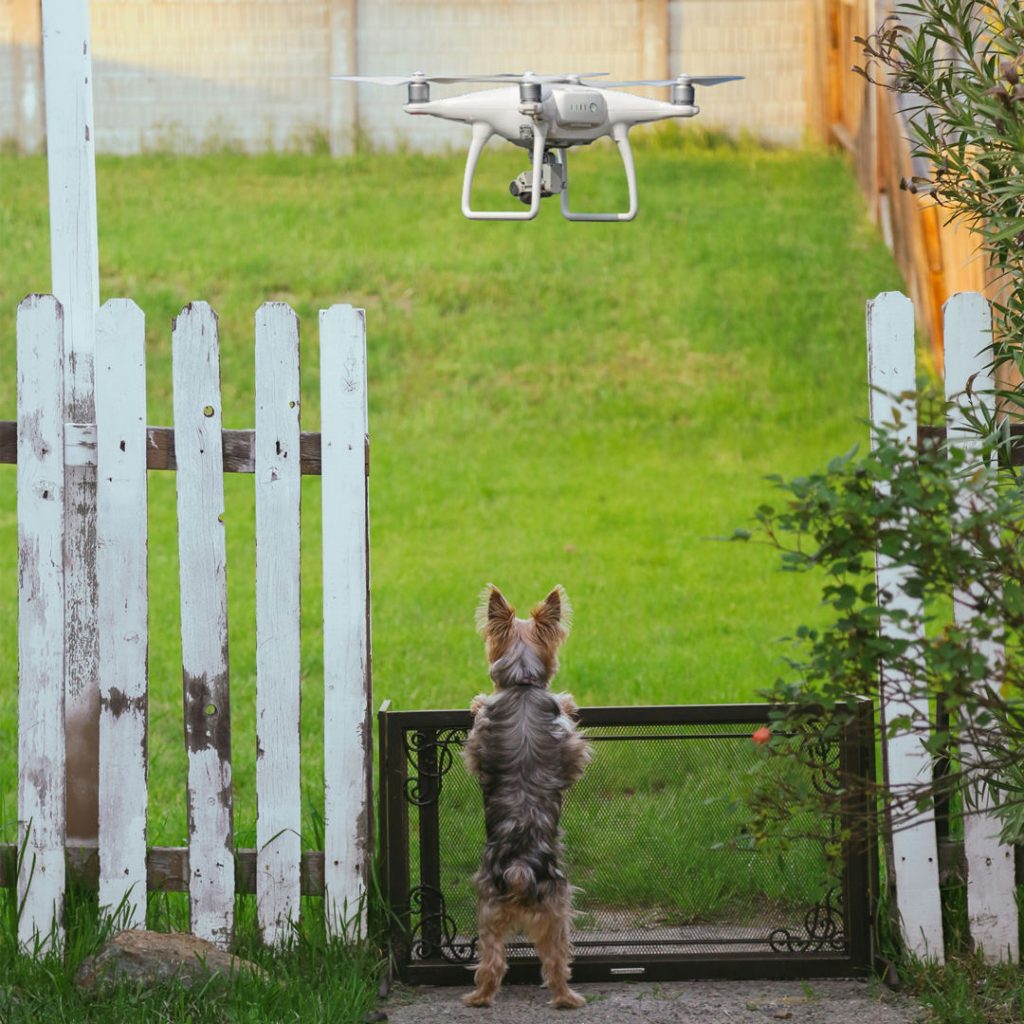
Tips for Flying Over Neighboring Property
Flying a drone over neighboring properties requires careful consideration of privacy and adherence to regulations. Here are practical tips to ensure responsible flying and maintain positive relationships with your neighbors:
- Obtain Permission: Always seek permission from property owners before flying over their land. This proactive step helps set clear boundaries and prevents misunderstandings.
- Maintain a Safe Distance: Keep a safe distance from people, homes, and structures to minimize accidents and respect privacy. Avoid flying over sensitive areas like hospitals or schools, which may have additional restrictions.
- Follow Airspace Regulations: Respect airspace restrictions, including no-fly zones near airports or military bases. Use tools like apps or online maps to stay informed about temporary flight restrictions.
- Use Privacy Filters: If your drone has a camera, consider using privacy filters to obscure views of private areas when flying over public spaces. This helps protect privacy and avoids unintended recordings.
- Respect Privacy Expectations: Recognize people's reasonable expectations of privacy in their homes and yards. Avoid capturing images or videos that invade personal privacy, and promptly delete any unintentional recordings.
- Consider Privacy Fencing: Be mindful of privacy fences and visual barriers. Avoid flying your drone in ways that allow it to peer over or through these barriers, respecting your neighbors' privacy.
- Noise Control: Refrain from operating noisy drones early in the morning or late at night to avoid disturbing neighbors.
- Limit Flight Frequency: Reduce the frequency of flights over or near private property to minimize disruption and respect the peace of the community.
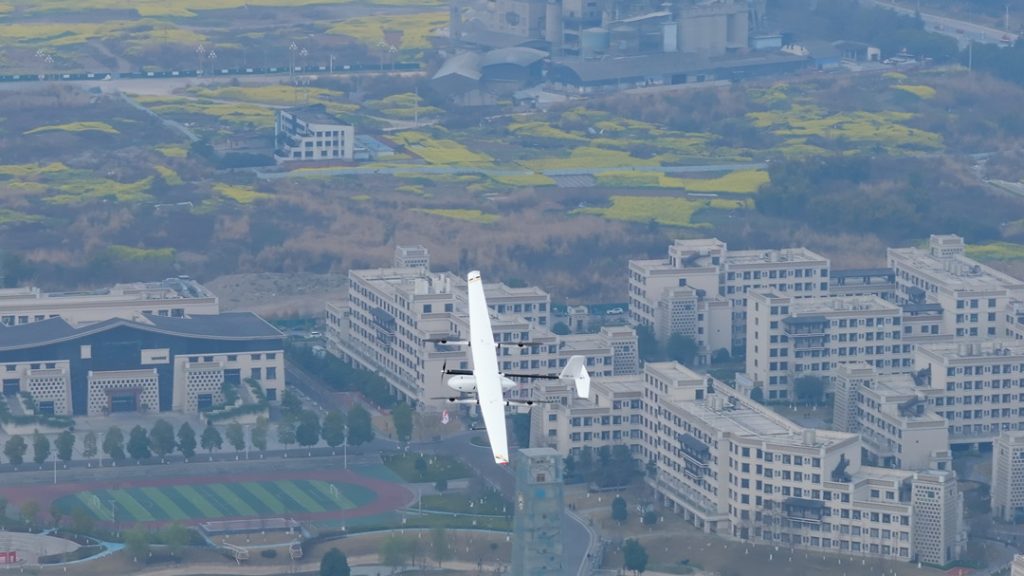
FAQ
Can Police Fly Drones Over Private Property?
There's no blanket permission for police drone flights over private property. Property owners have a reasonable expectation of privacy, and drone surveillance can be intrusive.
Exceptions may exist:
- Warrant: Police with a warrant can typically use any surveillance tool, including drones, to gather evidence.
- Exigent circumstances: In emergencies where there's probable cause for a crime or danger to the public, police might use drones without a warrant. This could include situations like searching for missing persons or pursuing fleeing suspects.
Local and state laws may have specific regulations regarding police drone use. It's important to check the laws in your jurisdiction for a more precise understanding.
Is it Okay to take photos of a property without the owner’s permission?
Taking photos while trespassing on private property is illegal. This includes taking photos from a drone hovering over someone's land without permission.
However, taking a photo is generally legal if you're on a public sidewalk or other public area and the property is visible from there. This applies to photography for hobbies or commercial purposes.
What if my Drone Crashes in Someone's Backyard?
If your drone crashes on someone else's property, you should promptly contact the property owner to seek permission to retrieve it. Respect their privacy and property rights throughout the process. Offer to repair any damage caused by the drone crash if necessary.
Can a Neighbor Keep Your Drone if They Find it on Their Property?
Legally, your neighbor cannot keep your drone if they find it on their property. They should contact you or local authorities to return the drone to you. It's essential to maintain good communication with neighbors to resolve such situations amicably.
Who is Responsible for Any Property Damage Caused by a Drone?
The drone operator is generally responsible for any property damage caused by the drone. Ensure you have liability insurance covering drone operations to mitigate financial liabilities. Report incidents to your insurance provider to facilitate compensation for damages.
Is it Legal to Peek from a Drone?
Using a drone for peeping or spying violates privacy laws and is illegal. Drones equipped with cameras must respect individuals' reasonable expectation of privacy in homes, yards, and private spaces. Always fly drones responsibly and comply with privacy regulations to avoid legal consequences.
Is It Legal for Someone to Shoot Down Your Drone If It's Over Their Property?
No, it is illegal for someone to shoot down your drone, even if it's flying over their property. Shooting at drones poses safety risks and violates aviation and property laws. Report such incidents to law enforcement for legal action and protection of your rights.
What to Do When Property Owner Shoots at Your Drone?
If someone shoots at your drone, stay calm, and follow these steps:
- Contact Local Law Enforcement: Report the incident, highlighting the firearm discharge and potential threat.
- Involve the FAA: Notify your local FAA Flight Standards Office (FSO) for aviation-related assistance.
- File an Insurance Claim: If your drone is damaged, report the incident to your insurance company.
- Approach Neighbor Cautiously: If you know the neighbor and have a good relationship, attempt a calm and informative conversation about drone flight regulations.
How Low can You Fly a Drone over Private Property?
Drone flight altitude regulations typically restrict flights to 400 feet AGL or below in uncontrolled airspace. Lower altitudes may be permitted with property owner consent and adherence to local laws. Higher altitudes may require FAA clearance near airports and restricted zones.



